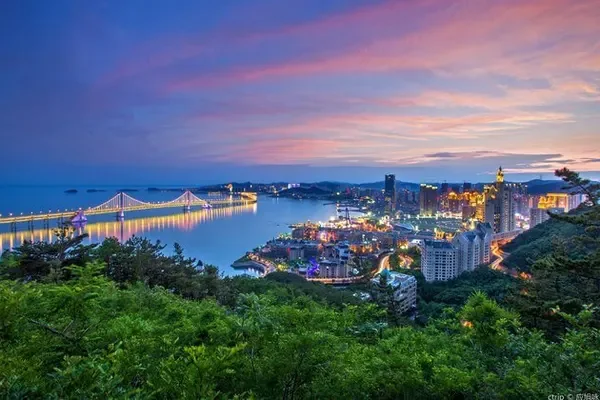Golden Wheatfield Business Hotel takes you into the great beauty of Xinjiang - if you haven't been to Kashgar, you haven't been to Xinjiang!
Kashi, Uighur: Kashigar, meaning: gem. The north-south junction of the ancient Silk Road, the only way to enter Central and Western Asia, was once an international commercial metropolis. Until modern shipping channels were discovered and utilized, the prosperity of the Silk Road gradually disappeared in the long river of history...
Cut a location for you to see (red dot in the picture)
Xinjiang, known as the Western Regions in ancient times, means: the faraway land of the Western Pole! In 1757 AD (Qianlong period of the Qing Dynasty), after the Qing government quelled the Junggar rebellion, it regained the former land and collectively called it Xinjiang, which means: return the homeland to the new. Since then, this land has been called Xinjiang!
Tradition and modernity coexist in Kashgar now. The vicissitudes of the old city seem to describe the precipitation of time, and the rapid changes of the new city have witnessed the rolling wheels of the times.
In Gaotai folk houses, most of the earliest residents were engaged in clay pottery. Now, there are fewer and fewer pottery fired by local methods, but there are still a few families continuing the ancient craft. Tursun Zunong, a clay pottery family who has lived here for generations.
The old city of Kashgar is very large, with criss-cross paths inside, like a maze. The housing density is also very high, and many houses are crossed on the road, with a strong contrast between light and dark. Children are playing in the aisles, and the old town is full of life!
The houses of the Uyghur people are very distinctive, and most of the decorations are brightly colored. Through the concealed door, it seems that you can travel through the tunnel of time and space...
Bazaar, Uighur means: market. Bazaars play an important role in the lives of Uighurs. Generally, a fixed day of the week is Bazaar Day, and people from surrounding villages and towns will gather here, like a big party.
On the outskirts of Kashgar, there is a livestock bazaar every Sunday. It is different from the traditional department store bazaar. The atmosphere here is more primitive and warm. Mules and horses neighing, dust flying, shouting endlessly, the atmosphere is in full swing!
Uyghurs have a natural talent for business, which is fully displayed here. The ancient way of trading is still preserved here, and people like to exchange prices in their cuffs, which is very interesting.
Under the simple shanty next to the livestock, there are authentic folk delicacies. Here are the most authentic Xinjiang delicacies, even if the hygienic conditions test your guts. I like the atmosphere better, and I like the mood of everyone eating together.
Whether business is good or not? People always want to eat something here, as if they have never been to Bazaar if they don't eat. Everyone is not arrogant or impetuous, and enjoys the food slowly, which is the meaning of bazaar.
The bazaar usually lasts for one day. Now that the means of transportation are developed, the traditional donkey carts are gradually decreasing. Some old people still like the old donkey cart, the old man who is hard to give up, and they also add some fodder during the break.
Coming here full of hope and returning with a full load of goods, this kind of life goes on and on, and it has not changed for thousands of years.
The material comes from "Walk Around Every Corner" [End]

